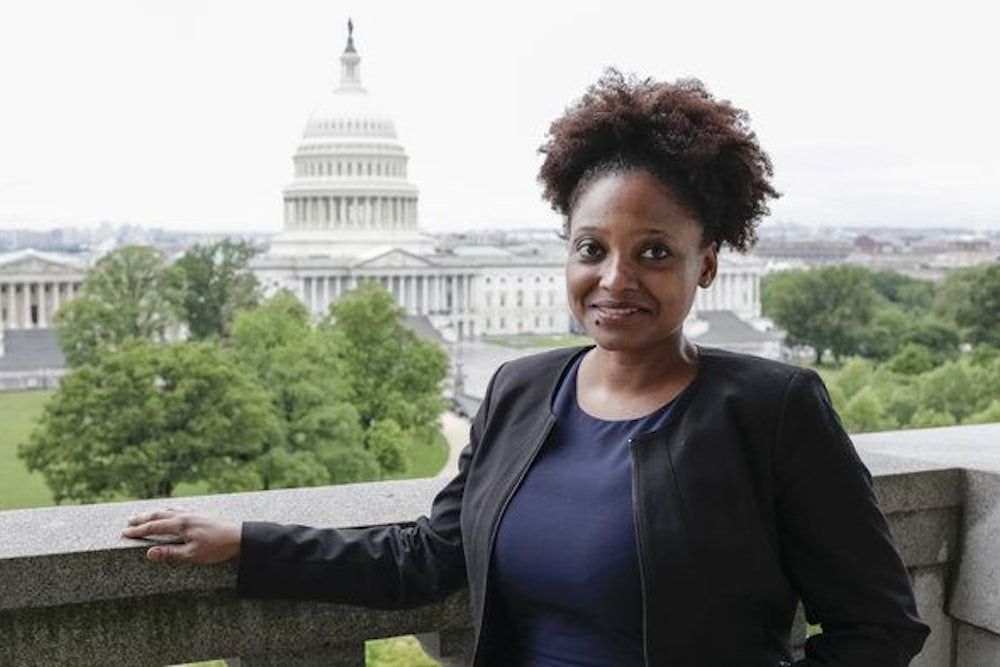The 45-year old poet and Princeton professor was named the U.S. poet laureate on Wednesday. Smith succeeds previous laureate Juan Felipe Herrera, and assumes an office once occupied by Louise Glück, Donald Hall, and Rita Dove.
In her memoir Ordinary Light, Smith states that her literary career began in earnest following a childhood discovery of Emily Dickinson’s work in a fifth-grade textbook. It isn’t hard to draw commonalities between the two: Both are Massachusetts natives who were raised in bookish families, and both draw heavily from metaphysics in their work. However, it is impossible to reduce Smith to a set of influences. Her best works deliberately defy easy compartmentalization, and her verse draws on everything from the Old Testament to David Bowie, who Smith elegantly mythologized in “Don’t You Wonder, Sometimes?”, a 2011 poem that unwittingly became a kind of elegy following Bowie’s death last year. And when Smith wrote an actual elegy—for her father, a Hubble telescope engineer—she chose to draw on the unlikely source of science fiction for inspiration.
Smith’s poetry, however, is just as concerned with the concrete as it is with the cosmic. Her current projects—two operas about development in New York and the legacy of American slavery—are deeply urgent works that reflect the author’s upbringing as the child of black, Southern parents in overwhelmingly white neighborhoods, as well as her constant struggle with her “sense of what it is to be American.” Her epic “They May Love All That He Has Chosen and Hate All That He Has Rejected” centers on five real-life hate crimes all committed in a one-month period in 2009, and the relevance of its harrowing verses has only grown sharper since its release six years ago.
While it may be tempting to label Smith a “political poet,” especially in today’s climate, Librarian of Congress Carla Hayden put it best when she referred to Smith as “poet of searching” in her official nomination statement. Smith’s poetry is about the shared human search—for justice, for remembrance, for national identity, or for the perfect Bowie song—amidst the cruelties of history and life’s unforgiving absurdities. For Smith, such human searching is fruitless more often than not, but it is a task that should be pursued regardless. As she puts it herself, “one day I’ll touch the world with bare hands / Even if it burns.”
